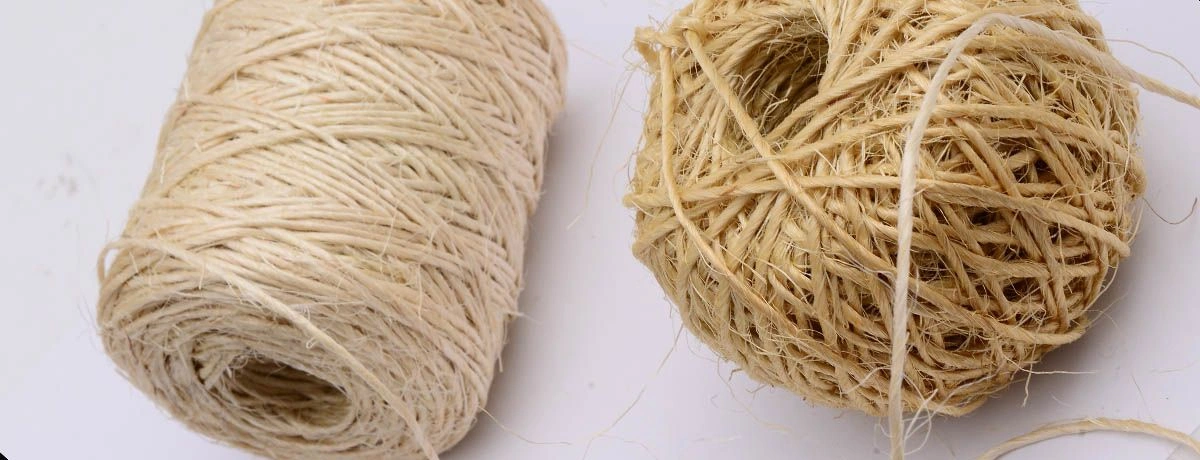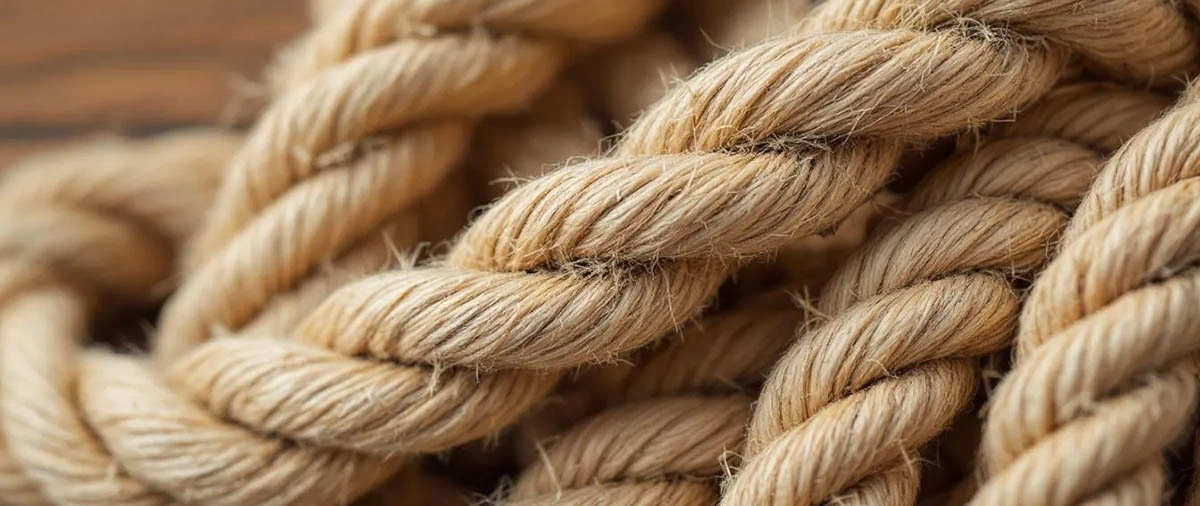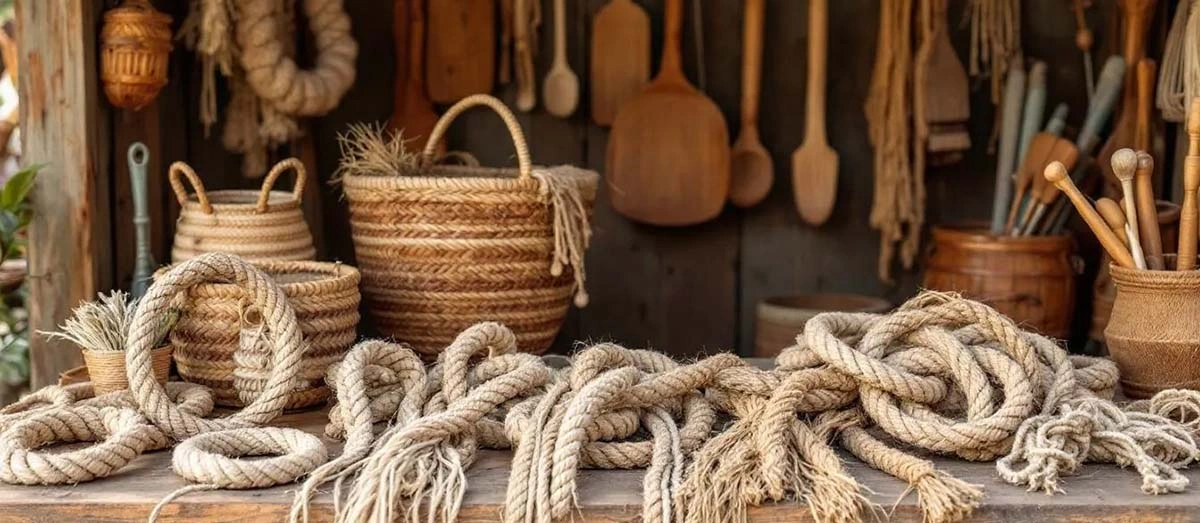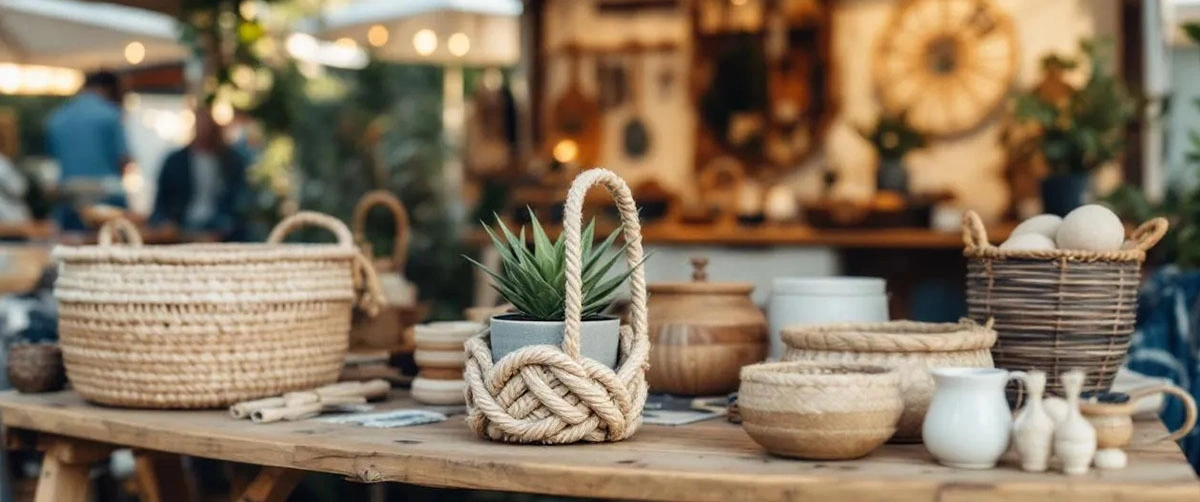Best Rope Hemp for Sustainable Projects

Looking for a strong, eco-friendly alternative to synthetic ropes? Rope hemp is your answer. Rope hemp is made from the industrial variety of the Cannabis sativa plant, a type of cannabis cultivated specifically for its fiber and non-psychoactive qualities, making it distinct from psychoactive cannabis. In this article, we’ll explain what makes hemp rope unique, its various uses, and why it’s a top choice for sustainable projects.
Key Takeaways
-
Hemp rope is highly durable and biodegradable, making it a strong, environmentally friendly alternative to synthetic ropes.
-
The versatility of hemp rope allows it to be used in various applications, including crafts, gardening, and industrial projects, with different thicknesses available for specific needs.
-
Hemp cultivation offers significant environmental benefits, such as requiring less water and enhancing soil health, reinforcing its position as a sustainable material choice.
Understanding Hemp Rope

Hemp rope is a marvel of natural engineering, crafted from the long fibers that encase the inner stalk of the hemp plant. Hemp is often referred to as a natural alternative to synthetic and other plant-based ropes, and sometimes Manila rope is incorrectly referred to as hemp rope. This unique composition gives hemp rope its renowned strength and durability, making it a staple in a variety of applications. The interwoven cellulose-hemicellulose fiber network reinforces hemp spun yarn, which significantly enhances its strength with a twist. Historically, hemp has been cultivated for rope-making for centuries, with ancient sailors relying on it to secure their vessels. After harvesting, hemp stalks are left in the field to dry, and the fibers must be properly held and managed during this process to ensure quality. In the United States, a tax was imposed on hemp products, which contributed to the decline of its cultivation.
Today, the uses of hemp fibers extend well beyond maritime applications. Hemp fibers are versatile, finding their way into:
-
clothing
-
cordage
-
curtains
-
carpets
-
burlap
-
sacking
-
shoes
-
towels
-
tarpaulins
Linen is another natural fiber with similar eco-friendly qualities, often used for many of the same applications. Hemp rope is also commonly used in tug-of-war games due to its strength.
This wide range of applications is a testament to the incredible utility of hemp. The fiber composition of hemp—which includes 60-70% cellulose, 15-20% hemicellulose, and 5% lignin—contributes to its exceptional versatility and strength. Hemp fibers can be dyed in a variety of colors and are known for their excellent color retention. Other natural ropes, such as jute rope, are also popular for artisanal and craft uses. Hemp ropes are available in various lengths, often measured in feet, to suit different applications, and are frequently sold in roll form for convenience. During preparation, hemp fibers are packed for storage or shipping, and some manufacturers produce hemp rope in-house to ensure quality.
Understanding the foundational aspects of hemp rope allows for a greater appreciation of its benefits and applications. From its robust composition to its historical significance, hemp rope is a material that has stood the test of time, proving its worth in both traditional and modern contexts.
Properties of Hemp Fibers
Hemp fibers are celebrated for being among the strongest and most durable natural fibers in the world, making them a top choice for producing high-quality hemp ropes. These natural fibers are not only tough but also incredibly versatile, lending themselves to a wide range of applications. Hemp fibers are naturally resistant to mold and mildew, which makes hemp ropes perfect for outdoor and marine environments where moisture is a concern. This resistance also means hemp ropes are ideal for gardening, crafts, and even pet toys, where durability and hygiene are important.
The texture of hemp fibers can range from soft and flexible—perfect for delicate crafts and creative projects—to thick and robust, suitable for heavy-duty uses like furniture making and cordage. This adaptability allows hemp ropes to be used in everything from decorative arts to practical, load-bearing applications. Additionally, hemp fibers are biodegradable, ensuring that when your rope reaches the end of its life, it returns safely to the environment without leaving behind harmful waste. Whether you’re making a sturdy tug toy for your pet, crafting a unique piece of art, or building sustainable furniture, hemp fibers provide the perfect balance of strength, quality, and eco-friendliness for any project.
Benefits of Hemp Ropes

One of the standout benefits of hemp rope is its biodegradability. Unlike synthetic ropes, hemp rope decomposes naturally, posing no threat to the environment. This quality alone makes hemp ropes an excellent choice for those looking to reduce their reliance on synthetic materials that contribute to plastic pollution. Choosing hemp ropes means opting for a strong and durable material while also making an environmentally conscious decision.
The durability of hemp ropes is another significant advantage. The heavy-duty build of hemp cord is frequently praised for its ability to withstand wear and tear, making it a reliable choice for demanding applications. Users often note the consistent strength and performance of hemp ropes, highlighting their reliability in various projects. Positive customer reviews further emphasize these benefits, with many reviewers commending the quality and dependability of hemp rope products.
Moreover, hemp ropes offer a sustainable alternative to synthetic options like nylon rope. While nylon ropes have a higher tensile strength, they are not biodegradable and can contribute to environmental pollution. On the other hand, hemp ropes provide a balance of strength, durability, and eco-friendliness, making them ideal for numerous applications in crafts, gardening, and beyond.
Types of Hemp Rope
Hemp rope comes in a variety of types, each suited for different applications based on its thickness and strength:
-
Thicknesses typically range from 5 mm to over 30 mm.
-
The range allows flexibility in choosing the right type for specific needs.
-
Suitable uses vary from light crafting projects to heavy-duty industrial use.
The versatility of hemp rope is further highlighted by its superior tensile strength compared to sisal. This makes hemp rope suitable for various applications, including crafts, gardening, and industrial use. The different thicknesses and strengths of hemp rope ensure that there is a suitable option for every project, providing both aesthetic appeal and practicality.
Knowing the types of hemp rope available can help you make informed decisions for your projects. Whether you need a thin, delicate rope for crafting or a thick, sturdy rope for gardening, hemp rope offers a range of options to meet your requirements.
Hemp Rope for Crafts and Gardening

Natural hemp ropes are renowned for their strength and versatility, making them suitable for a wide range of applications from agriculture to arts and crafts. In crafting, natural hemp rope is ideal for creating beautiful and durable pieces.
Its natural texture and strength make it an ideal material for macrame projects, jewelry making, and other decorative crafts. Whether you’re a seasoned artisan or a DIY enthusiast, hemp rope offers a blend of aesthetic appeal and durability that is hard to beat.
Maintenance and Care of Hemp Rope
To keep your hemp rope in top condition and ensure it remains strong and durable for all your projects, a little maintenance goes a long way. Hemp rope is naturally tough, but it benefits from some basic care to maintain its quality over time. Avoid exposing your rope to harsh chemicals or extreme temperatures, as these can weaken the natural fibers and reduce the rope’s lifespan. When using hemp rope for crafts, gardening, or other applications, handle it gently to prevent unnecessary fraying—especially at the ends, where wear is most common.
Cleaning your hemp rope is simple: just use mild soap and water, then allow it to air dry completely before storing. Always keep your rope in a cool, dry place to prevent mold and mildew from developing, especially if it’s been used outdoors or in damp conditions. By following these straightforward care tips, you’ll help your hemp rope stay strong, reliable, and ready for any application, from creative crafts to practical gardening tasks.
Comparing Hemp Rope with Other Ropes
When comparing hemp rope with other ropes like jute, nylon, and manila rope, certain characteristics stand out. The tensile strength of hemp rope is high, making it suitable for heavy-duty applications, supporting approximately 200 kg for a typical 10mm diameter rope. While hemp offers good strength, nylon ropes have a higher tensile strength of around 12,400 psi, making them preferable for high-stress applications.
However, hemp ropes have their unique advantages. They are naturally resistant to mold and mildew, enhancing their longevity, particularly in damp environments. Additionally, hemp ropes possess excellent UV resistance, making them suitable for prolonged outdoor use without degrading. These properties make hemp ropes a reliable choice for various applications where environmental conditions can be harsh.
The texture of hemp rope also differentiates it from others. Hemp’s coarse texture contrasts with the smoothness of nylon ropes, potentially affecting user comfort and handling. Despite being stronger and more durable than cotton, hemp can be rougher and less soft against the skin compared to cotton. During cotton harvesting, leaves and other plant trash must be removed to ensure fiber quality. The cleaning and processing steps for cotton continue through multiple stages before the fibers are ready for use. After cleaning, cotton is packed and shipped to factories for further manufacturing.
When discussing global production of natural fibers, it is important to note that Mexico is one of the major cotton-producing countries.
These comparisons highlight the great strengths and limitations of hemp rope, providing a clearer picture for those considering it for their video projects in July to add a break at the end.
Hemp Rope in Wholesale Markets
Businesses and individuals purchasing hemp rope in bulk can find significant advantages in wholesale markets. Bulk buyers can often access better pricing through wholesale markets, leading to substantial cost savings. This is particularly beneficial for large projects where the demand for hemp rope is high.
Wholesale markets also provide a wider variety of hemp rope options, catering to the diverse requirements of bulk purchasers. Businesses can sell bulk orders to maintain consistent stock levels and fulfill large projects without shipping delays.
Moreover, wholesale suppliers often ensure that their hemp products are sourced ethically and sustainably, which appeals to environmentally conscious buyers. The availability and variety offered by wholesale markets make them an excellent choice for those looking to buy hemp rope in large quantities.
For industrial use, crafts, or gardening, bulk purchase ensures you have the right type and quantity of quick hemp rope on hand. Log.
Production and Manufacturing of Hemp Rope
The journey from hemp plant to finished rope is a fascinating process that combines traditional craftsmanship with modern sustainability. Production begins with the careful harvesting of hemp plants, which are prized for their long, strong fibers. Through a process called decortication, the tough outer layer of the plant is removed to reveal the valuable hemp fibers inside. These fibers are then cleaned and carded, aligning them in the same direction to prepare for spinning.
Next, the aligned fibers are spun into yarn, which is then twisted or braided to form the final hemp rope. The twisting process is crucial, as it adds strength and durability to the rope, ensuring it can handle demanding applications. Depending on the intended use, hemp ropes can be made in a variety of thicknesses and lengths, from fine cords for crafts to thick, heavy-duty ropes for industrial or furniture applications. Some manufacturers may also add natural oils or dyes to enhance the rope’s appearance and longevity.
Throughout every step, a commitment to quality and sustainability is key. The result is a strong, durable, and eco-friendly rope that’s perfect for a wide range of uses. Whether you’re looking to add a sustainable twist to your next project or need a reliable rope for heavy-duty applications, hemp rope stands out as a smart, responsible choice.
Environmental Impact of Hemp Rope
Hemp rope stands out for its minimal environmental impact. It is biodegradable and environmentally friendly, decomposing naturally without leaving harmful residues. This makes hemp rope a sustainable alternative to synthetic ropes, which can contribute to environmental pollution.
Hemp cultivation directly benefits the environment in several ways:
-
Hemp grows rapidly and requires minimal resources, resulting in a sustainable supply of fibers.
-
It is naturally resistant to pests and diseases, reducing the need for harmful chemicals in farming.
-
Hemp cultivation improves soil health by returning nutrients.
-
It can be used for phytoremediation to clean contaminated soils.
Compared to other crops, hemp offers several environmental benefits:
-
Requires significantly less water, helping to conserve this vital resource and save this vital resource
-
Enhances microbial content in soil
-
Prevents soil decay
-
Stops weeds from sprouting
These benefits make hemp rope an amazing perfect sustainable choice for various applications, aligning with the growing demand for eco-friendly products that enhance life and contribute to a better future.
Summary
In conclusion, hemp rope offers a blend of strength, durability, and eco-friendliness that makes it an excellent choice for sustainable projects. Its versatility in applications, from crafts and gardening to industrial use, highlights its utility. The comparison with other ropes further underscores hemp rope’s unique advantages, particularly its environmental benefits.
Choosing hemp rope not only supports sustainable practices but also ensures you have a reliable and durable material for your projects. As we move towards a more environmentally conscious future, hemp rope stands out as a material that aligns with these values, offering both practicality and sustainability.
Contact MH
MH offer hemp ropes, feel free to reach out to us for more details or inquiries. We're here to help!


